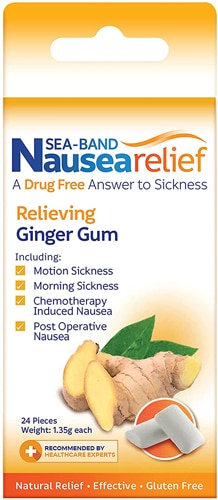One of life’s great joys is sitting down to share a meal with loved ones at restaurants, picnics and backyard barbecues.
But a bad bout of food poisoning can quickly spoil such fun.
How to know if you have food poisoning
Symptoms of food poisoning can range from mild to severe, and often include:
- Nausea
- Vomiting
- Loose stools
Each year, foodborne illness sickens 48 million Americans, according to the U.S. Centers for Disease Control and Prevention. About 128,000 are hospitalized, and 3,000 die from this contamination.
There are more than 250 foodborne diseases, mostly infections caused by exposure to bacteria, viruses and parasites. According to the CDC, the five germs most likely to cause foodborne illness are:
- Norovirus
- Salmonella
- Clostridium perfringens
- Campylobacter
- Staphylococcus aureus (Staph)
Toxins and chemicals also can contaminate food and trigger foodborne illness.
Sometimes, it can be difficult to distinguish symptoms linked to foodborne illness from a simple case of the flu.
One of the best ways to determine if you have food poisoning – and to identify the food that caused the illness -- is to keep an eye on your dinner companions, says Bruce Ruck, managing director of the New Jersey Poison Center.
“If somebody ate the same thing and got sick, it’s more likely that food,” Ruck says.
By contrast, if somebody ate the same food and didn’t get sick, it may be a different food -- or something else entirely – causing the illness.
When should you see a doctor?
The CDC notes that most cases of food poisoning do not require medical attention and will clear on their own with time.
However, in other instances, you should see a physician promptly.
“If you’re losing a lot of fluid through either vomiting or diarrhea, you should be seen by a health care professional,” Ruck says. “We want to make sure you do not get dehydrated.”
Telltale signs that you might need to see a doctor include:
- Severe abdominal pain
- Vomiting several times and not stopping
- Light headedness or dizziness
- An inability to keep fluids down
- Fever
- The presence of blood in vomit or stool
In addition, extra caution should be exercised with people who are at greater risk of dehydration.
“The elderly need to be seen (by a doctor) sooner,” Ruck says. “Young infants and children need to be seen sooner.”
Pregnant women and people with compromised immune systems also should err on the side of caution if they suspect foodborne illness.
Ruck says people who take prescription medications also should see a physician if they are vomiting or have severe diarrhea, as these symptoms may prevent the body from absorbing the drug.
In short, whether or not to see a physician depends on many different circumstances and varies from situation to situation.
“If you’re not sure, you can always call your local poison center,” Ruck says.
Calling a national number – 800-222-1222 – will get you to your local center, he adds.
Prevention of food poisoning
Preventing food poisoning can be relatively simple. “Food handling and food preparation is probably most important,” Ruck says.
Cook foods to the proper temperature. The CDC offers a handy chart for determining the safe temperature for various types of foods.
When preparing foods, wash your hands frequently in soap and warm water for a minimum of 20 seconds each time.
Also, wash fruits and vegetables before consuming them. Make sure to keep hot foods hot and cold foods cold. That helps prevent bacteria from growing.
“In this type of weather, you don’t want to leave foods that are temperature-sensitive – mayonnaise, meat and fish – out in the warm weather, like at your barbecue or picnic,” Ruck says.
Also, avoid cross-contamination of foods. “You don’t want to cut raw chicken, and then cut cooked chicken with the same knife,” Ruck says.
If you have a limited number of utensils, make sure to wash them between uses – for example, wash a knife with soap and water after using it to cut meat, and before using the same knife to chop up fruit, Ruck says.




